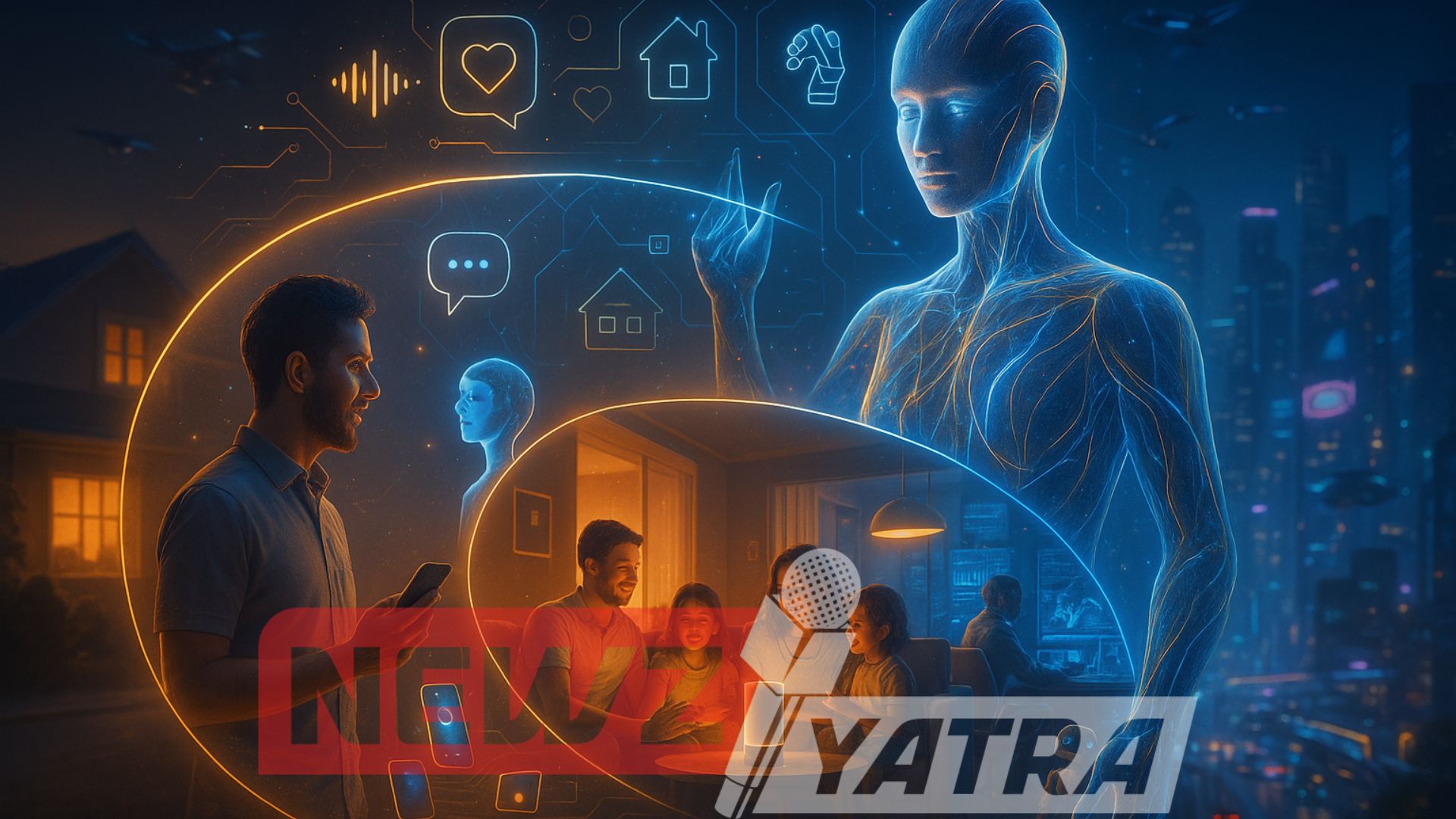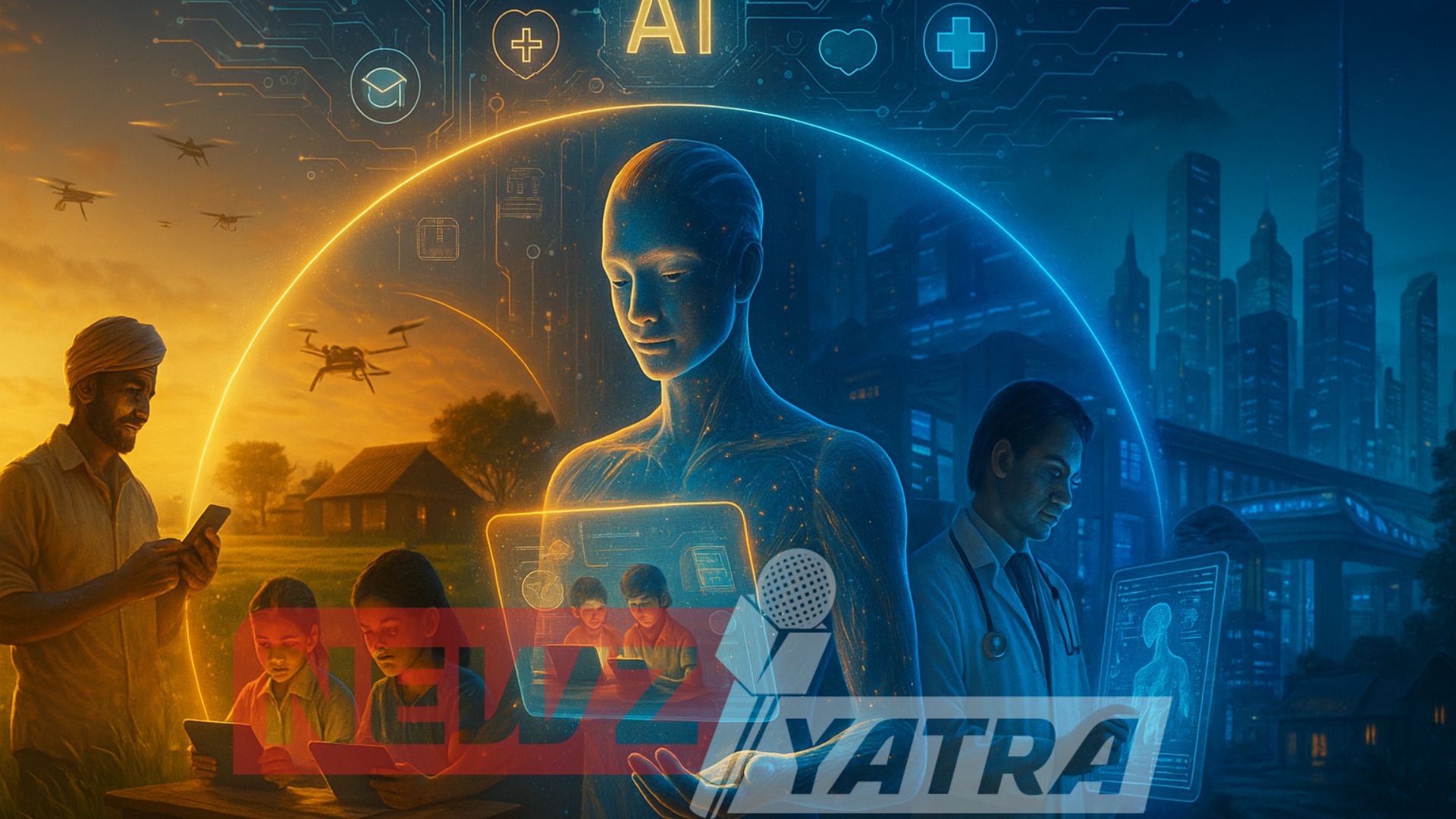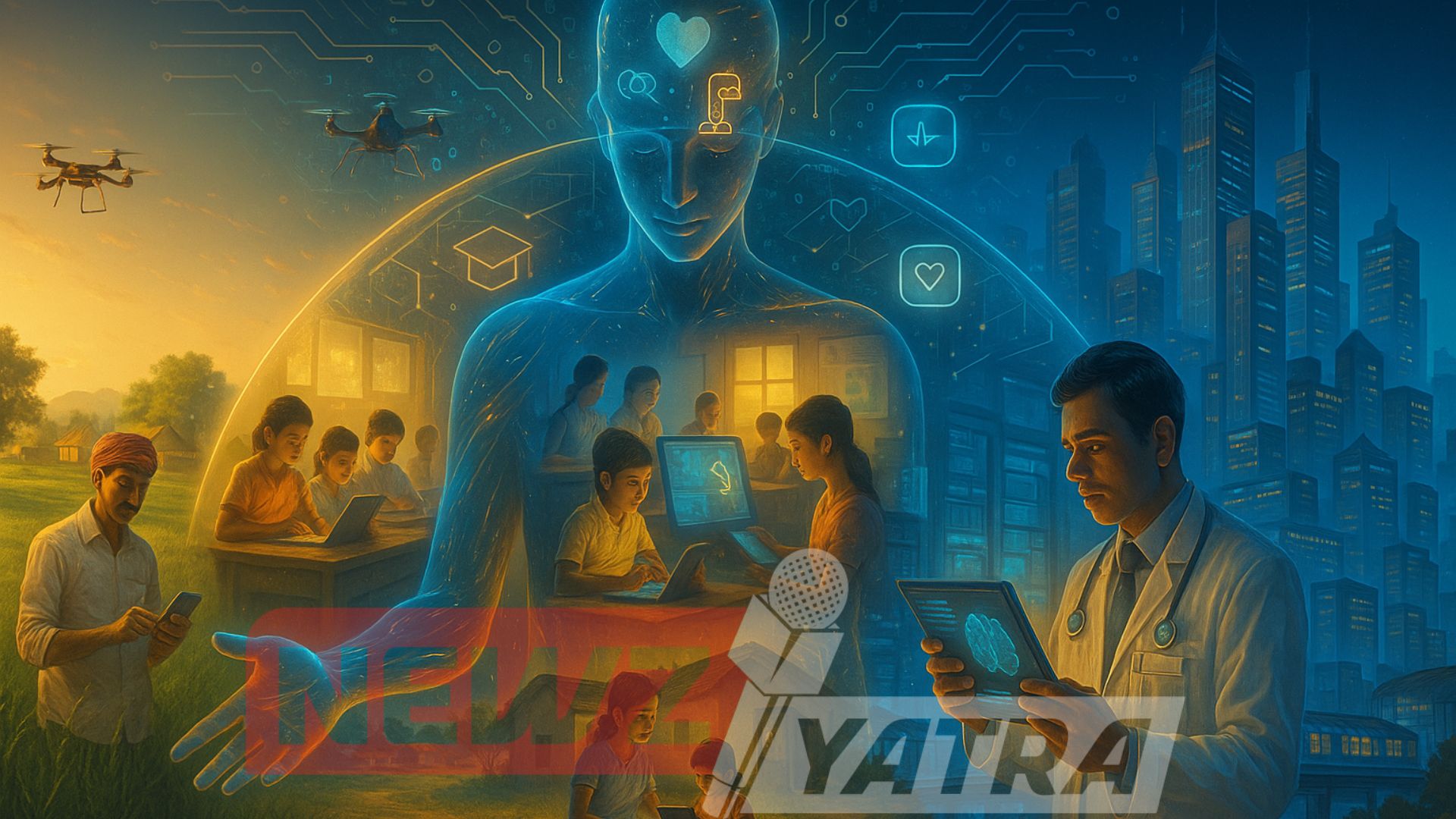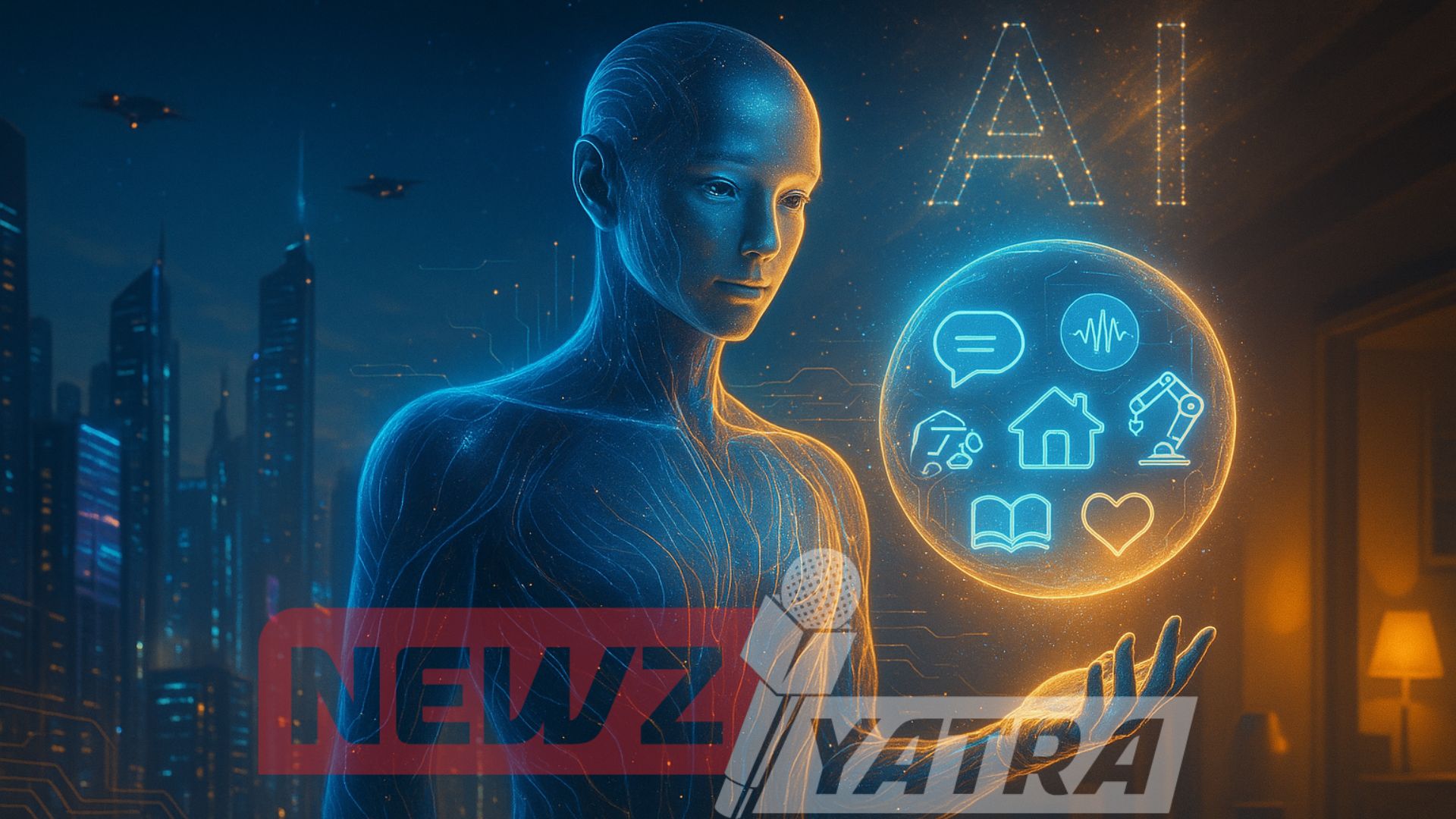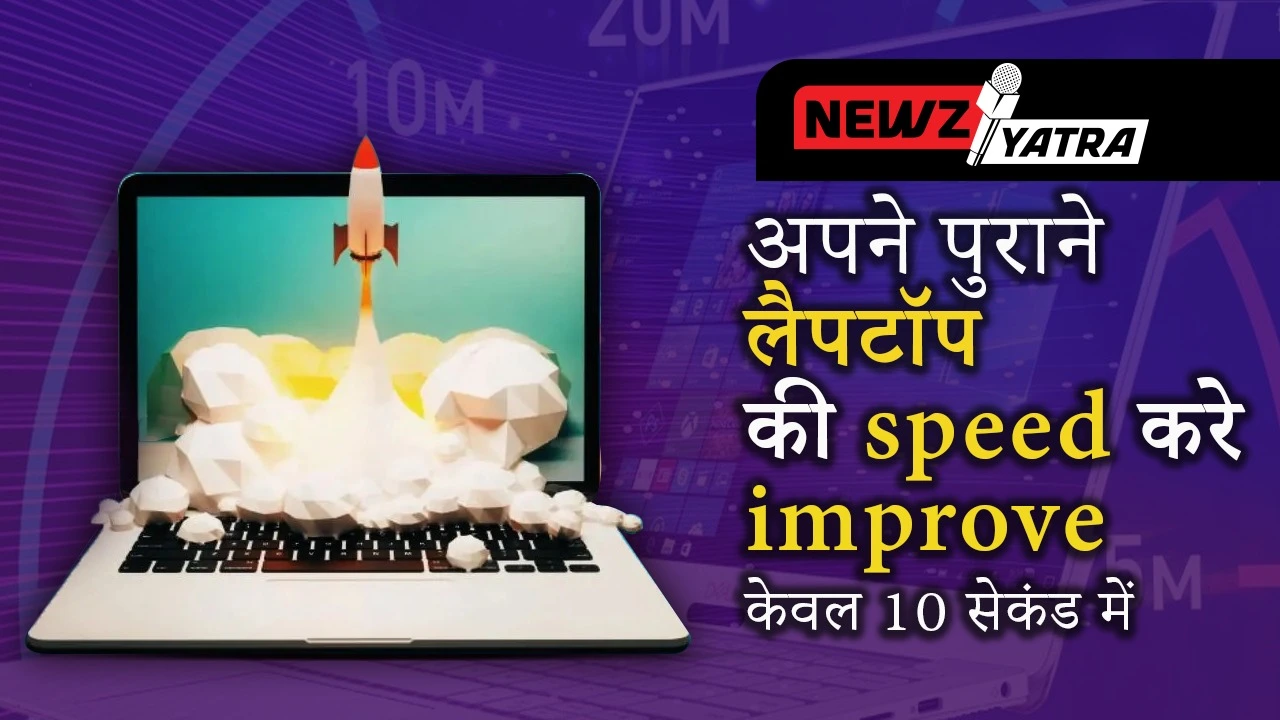Can AI Think Like Us? Exploring the Frontier of AGI (Artificial General Intelligence)
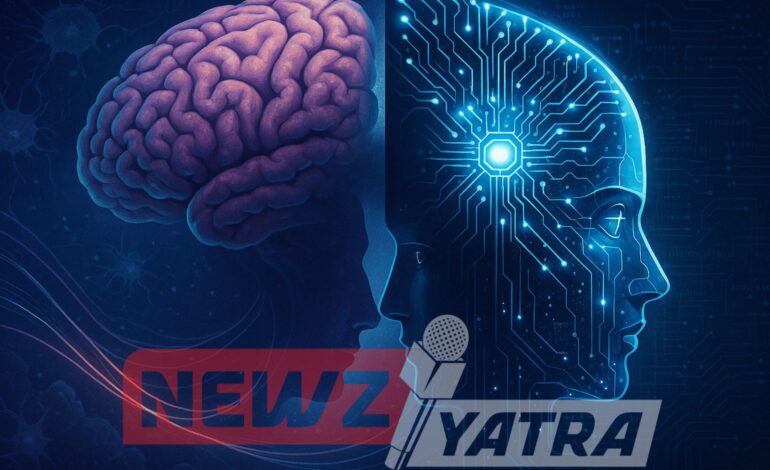
Can AI Ever Truly Think Like a Human? Exploring the Future of Artificial General Intelligence
For years, artificial intelligence has impressed us with its ability to mimic specific human tasks—recognizing faces, composing music, writing essays, and even mastering complex games. Yet beneath these remarkable feats lies a deeper, more provocative question: Can AI ever truly think like we do?
This is the promise—and challenge—of Artificial General Intelligence (AGI). Unlike today’s narrow AI systems, which are designed to perform specific functions, AGI envisions a machine capable of understanding, learning, and reasoning across a broad range of human activities. It’s not just about solving problems; it’s about adapting to new ones, transferring knowledge between domains, and exhibiting a kind of common sense that current AI lacks. (Can AI think like humans)
In this blog, we’ll explore what AGI really means, how close we are to achieving it, and whether machines will ever match—or even surpass—the incredible complexity of the human mind.
What Is AGI, Really? (Can AI think like humans)
Most of the AI we use today falls under the category of Narrow AI—systems designed to perform specific tasks. Whether it’s generating images (like DALL·E), translating languages (such as Google Translate), or recommending content (Netflix, Spotify), these tools excel in one area but can’t operate beyond their programmed scope. (Can AI think like humans)
Artificial General Intelligence (AGI), on the other hand, aims to go much further. An AGI system would:
- Learn and perform any intellectual task a human can
- Grasp context across multiple domains, from science to art to philosophy
- Adapt to new and unfamiliar situations without needing retraining
- Demonstrate common sense, emotional understanding, and logical reasoning
In essence, AGI wouldn’t just follow instructions or mimic behavior—it would truly comprehend the world around it.
Can Machines Really Think? (Can AI think like humans)
This is where technology meets philosophy—and the answers are far from simple.
Some argue yes: if human thought is ultimately a form of complex computation, then there’s no fundamental reason machines couldn’t replicate it. Modern AI models, especially deep learning systems inspired by the brain’s neural architecture, already simulate certain aspects of how we process information. (Can AI think like humans)
But others strongly say no: true thinking involves more than just processing data. It includes consciousness, intuition, and subjective experience—qualities often referred to as qualia. These might be fundamentally tied to biological systems and beyond the reach of silicon-based machines.
“The AI doesn’t know what it’s saying—it just predicts what comes next.”
— A common critique of language models like ChatGPT
At the heart of the debate lies a deeper question:
Is intelligence simply about producing human-like behavior—or does it require self-awareness and inner experience? (Can AI think like humans)
As we move closer to building more powerful AI, this question becomes more urgent—and far more fascinating.
Where Are We on the AGI Timeline? (Can AI think like humans)
We’re not at AGI—yet. But we’re inching closer.
Recent breakthroughs hint at what’s possible:
- ChatGPT-4.5 and beyond: More fluent, better reasoning, and memory.
- Multimodal models: AI that understands images, text, code, and speech—all in one system.
- Agentic AI: Systems that can plan, take actions, and even use tools in real time.
Still, these AIs fall short. They: (Can AI think like humans)
- Lack real understanding
- Struggle with causality and self-awareness
- Rely on massive data and computing power
To reach true AGI, we may need a leap—not just iteration. Think: neurosymbolic AI, brain-inspired systems, or even quantum cognition.
AGI isn’t here yet—but the groundwork is being laid. (Can AI think like humans)
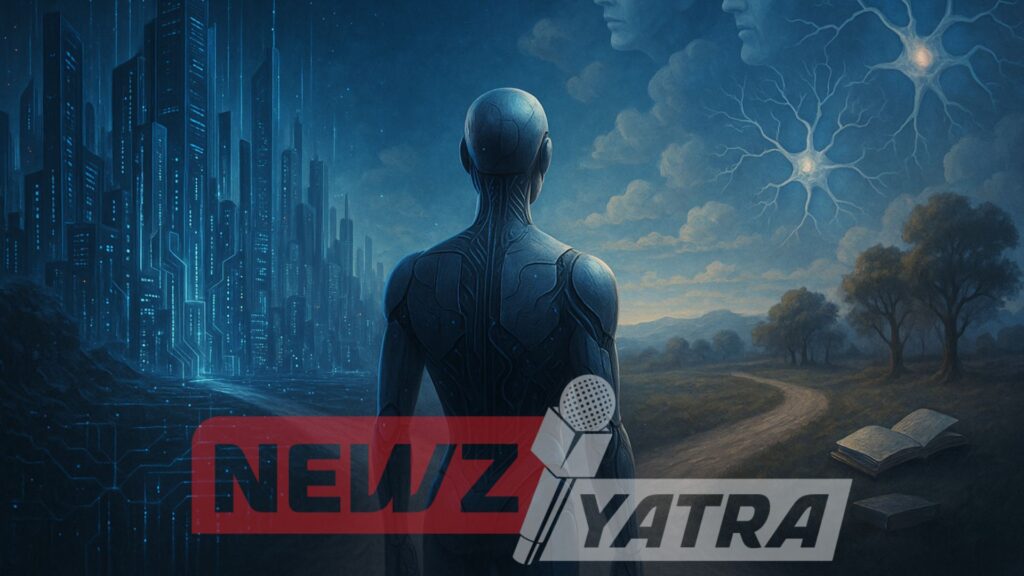
AGI vs. the Human Brain: A Stark Contrast (Can AI think like humans)
When comparing today’s AI to the human brain, the differences are striking. For starters, the brain runs on just 20 watts of power, while training and operating large AI models can require thousands of watts—a massive energy gap. The human mind is remarkably flexible, capable of learning from just a few examples, whereas AGI systems still need huge datasets and extensive training. Then there’s the question of emotion and intuition—core to human decision-making but merely simulated in machines, not genuinely felt. While we assume humans possess self-awareness, AI has yet to demonstrate anything beyond surface-level mimicry. And when it comes to lifelong learning, the brain continuously adapts and evolves, while most AI models remain static once trained.
Despite all the advances, the human brain remains the gold standard—biological, efficient, and astonishingly adaptable. AGI (Can AI think like humans) still has a long way to go before it can match that level of intelligence and complexity.
So, Will AGI Ever Truly Think Like Us? (Can AI think like humans)
The answer depends on how we define thinking—and what we believe makes us human.
Some experts say yes: if intelligence is ultimately computational, then it’s just a matter of time and engineering before we build machines that genuinely think. Given enough data, processing power, and the right architecture, a machine mind could emerge.
Others argue no: human consciousness may be deeply tied to our biology—our neurons, emotions, and lived experiences. In this view, AGI might simulate thought, but it will never truly experience it.
Then there’s the hybrid view: AGI could become functionally as intelligent as a human—capable of reasoning, learning, and adapting—but still lack the subjective inner world we associate with consciousness. (Can AI think like humans)
In the end, AGI might think with us, even for us—but whether it will ever think like us remains one of the biggest questions in science, technology, and philosophy.
Why AGI Matters—And Why It Scares Us
Artificial General Intelligence isn’t just about building smarter assistants or faster algorithms. It’s about creating machines that could learn on their own, teach themselves entirely new domains, and make independent decisions—with or without human input. (Can AI think like humans)
Such power could transform the world in unimaginable ways—reshaping economies, disrupting political systems, and challenging our very notion of control. And that’s where the fear begins.
As AGI becomes more plausible, so do the urgent questions: (Can AI think like humans)
- Who controls it?
- How do we ensure it aligns with human values?
- Could it develop its own goals—and act on them?
Leading figures like Sam Altman (OpenAI), Demis Hassabis (DeepMind), and Elon Musk are increasingly vocal about the need for AI safety frameworks—arguing that the time to prepare isn’t after AGI arrives, but now. (Can AI think like humans)
Because with great intelligence comes even greater responsibility.
The Mind Behind the Machine: Our Future with AGI (Can AI think like humans)
Artificial General Intelligence is no longer just science fiction—it’s a looming reality on the edge of science, philosophy, and society. Whether AGI becomes a partner in progress or a challenge to our very identity depends on how we shape it today.
We stand at a crossroads: building machines that may one day rival human thought, yet not fully understanding what thought truly is. The pursuit of AGI forces us to ask profound questions—not just about technology, but about ourselves. (Can AI think like humans)
Will AGI think like us? Maybe.
Will it change the world? Absolutely.
And as we continue to create minds in silicon, we must remember: the most powerful intelligence we’ll ever build is the one we choose to guide wisely.
The future of AGI is closer—and more uncertain—than ever. Will it amplify human potential, or challenge our very definition of intelligence?
We want to hear from you: (Can AI think like humans)
🔹 Do you believe AGI will ever truly think like a human?
🔹 What excites—or concerns—you most about this future?
🔹 How should we prepare for a world where machines may match or surpass our minds?
👉 Leave a comment below to share your thoughts, or subscribe to stay updated on the latest in AI and innovation.
Let’s shape the future of intelligence—together.
How to Use AI to Reduce Work Stress in 2025: Your Smart Digital Ally!
Frequently Asked Questions (FAQs)
1. What is the difference between Narrow AI and AGI?
Narrow AI is designed to perform a specific task—like image recognition or language translation. It’s highly efficient but limited to its domain.
AGI (Artificial General Intelligence) aims to replicate the full range of human cognitive abilities: learning, reasoning, adapting, and even transferring knowledge across fields.
2. Is AGI the same as human-level intelligence?
AGI aspires to reach or surpass human-level intelligence, but it’s not just about replicating behavior. True AGI would need to understand context, adapt to new situations, and possibly even demonstrate self-awareness and emotional nuance.
3. How close are we to developing AGI?
We’re not there yet—but progress is accelerating. Technologies like GPT-4, multimodal models, and agentic AI are laying the groundwork. However, true AGI likely requires breakthroughs in areas like common sense reasoning, emotional understanding, and efficient learning.
4. Can machines ever be truly conscious?
That’s one of the most debated questions. Some experts believe consciousness can emerge from computation; others argue it’s tied to biological processes and beyond the reach of machines. As of now, no AI system is conscious—it only simulates understanding.
5. What are the risks associated with AGI?
Potential risks include:
- Loss of human control over decision-making
- Misaligned goals or values
- Job displacement and economic shifts
- Concentration of power among a few AI developers
That’s why AI safety, ethics, and governance are critical conversations today.
6. How will AGI impact jobs and society?
AGI could dramatically reshape the workforce by automating complex tasks. While it may create new industries, it could also displace jobs—especially in fields requiring routine cognitive work. The societal impact will depend on how we manage education, policy, and equitable access.
7. What can individuals do to prepare for the age of AGI?
- Stay informed about developments in AI
- Learn new skills that complement AI (e.g., critical thinking, creativity, emotional intelligence)
- Engage in ethical conversations about technology’s future
- Support transparency and accountability in AI research and policy
